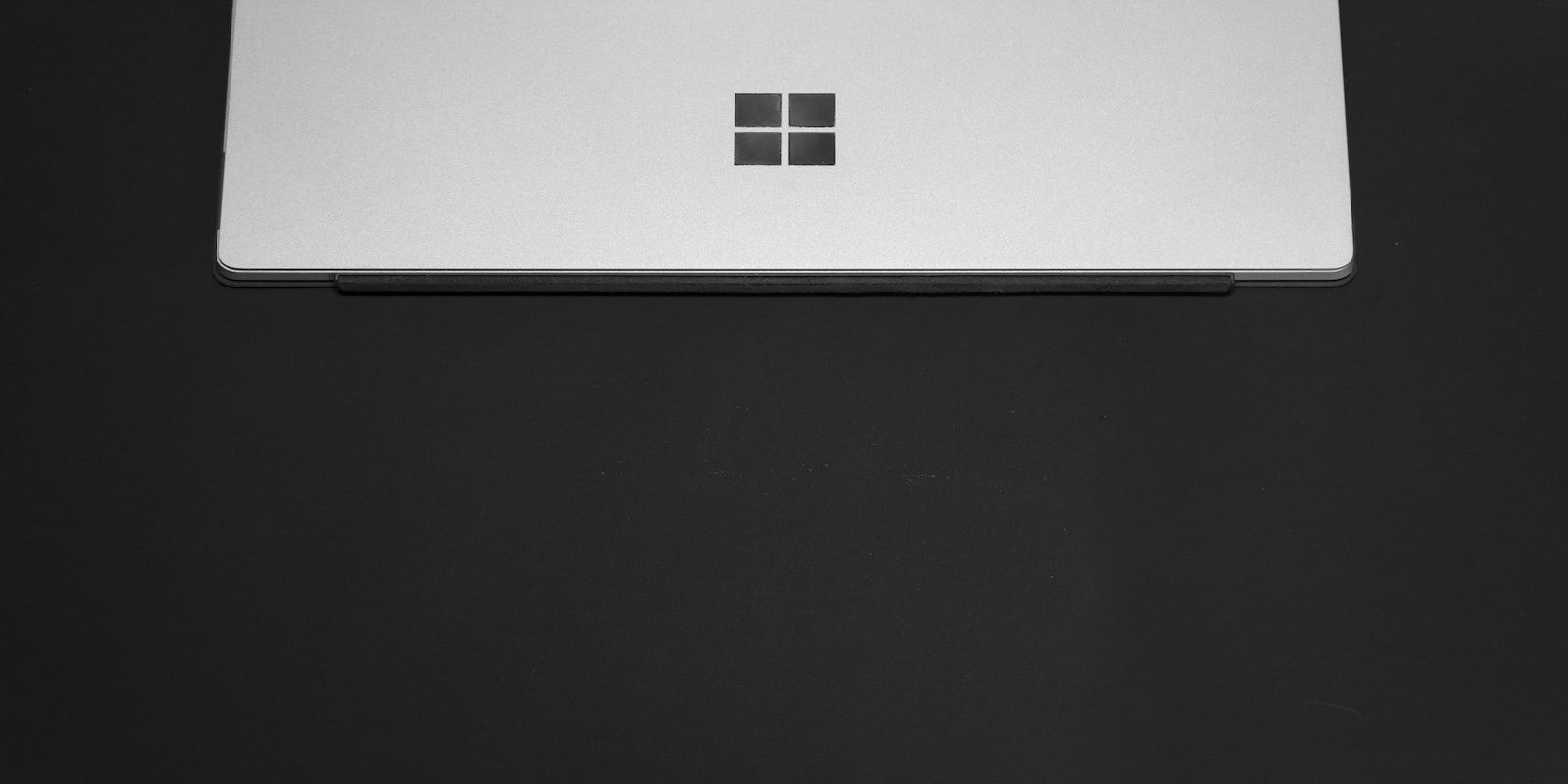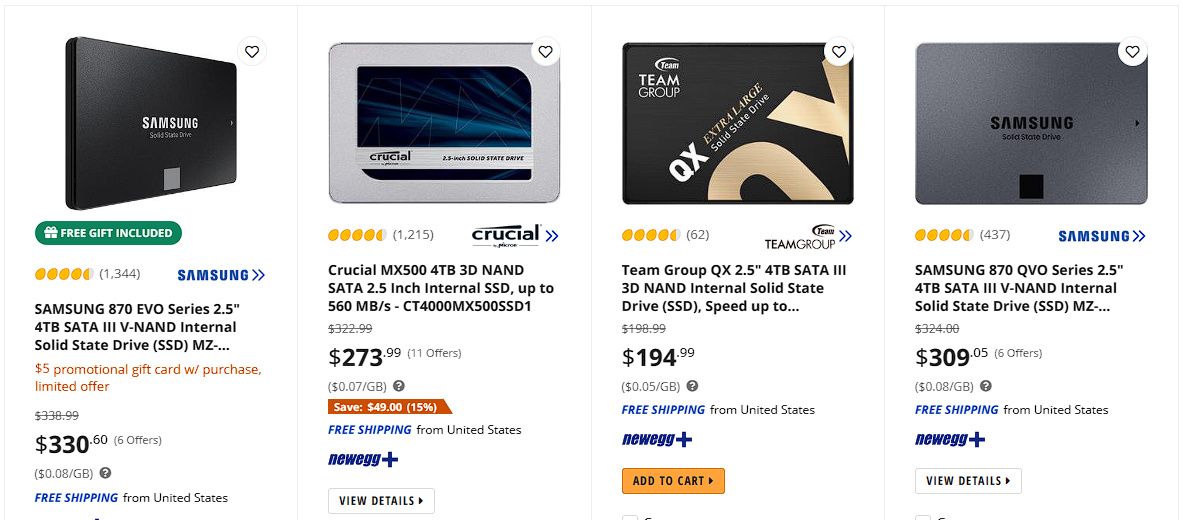
Why HDDs Remain My Preferred Choice: 4 Compelling Advantages

Why HDDs Remain My Preferred Choice: 4 Compelling Advantages
Quick Links
- Large Capacity HDDs are Still Way Cheaper Than SSDs
- HDDs Can Be Safer for Long Term Storage
- A Memory Cache Device Can Close the Speed Gap
- The Benefits of an SSD Aren’t Always Needed
Is choosing an SSD over an HDD always the best option? Every PC I’ve built in the last two decades has included at least one HDD, as will the next system I put together. Solid State Drives have many benefits, but there are still good reasons not to dismiss Hard Disk Drives completely.
Large Capacity HDDs are Still Way Cheaper Than SSDs
The cost vs. capacity ratio of HDDs is likely the main reason why anyone, including myself, still buys them. If you need more than 4TB of storage and don’t want to spend a fortune, HDD beats SSD every time.
The price difference isn’t so much of a factor if you only need one or two terabytes. The average 1TB 2.5in SSD might only cost ten or twenty dollars more than a 1TB hard drive, but as the storage size increases, the ratio between price and capacity shifts in favor of the HDD. Even a basic 4TB SSD is going to cost around $200, and you can probably add another $100-$150 if you want something from premium brands like Samsung, Crucial, or PNY.

Average 2.5in SSD prices on newegg.com
By comparison, the 4TB Seagate Ironwolf Pro HDD I picked up for less than ninety bucks seems like a bargain. By splitting the storage in my PC between a smaller SSD and a much larger HDD, I enjoy the benefits of fast boot and load times alongside bags of file storage space. And all for less than half the cost of a single large-capacity solid-state drive.
HDDs Can Be Safer for Long Term Storage
Many of the things I do in both my work and personal life, from video editing to photography, generate large digital files. As work or hobby projects are completed, they get stored on the HDD plugged into my external hard drive dock. Filled drives are safely archived, sometimes for years without being touched, before a fresh one is plugged in.
It’s not a system everyone will want or need to adopt, but it works for me. And when I inevitably need to access a file on one of those years-old drives, I can be pretty sure they won’t have suffered from data loss.
Data loss or leaks can occur in an unpowered SSD because the data is stored using minuscule electrical charges. The containers where the charges are stored aren’t perfect and can leak over time. Without periodical power input to refresh them, the charges gradually weaken to the point that data can be lost.
To be clear, this isn’t a process that will occur in a few weeks. You don’t need to worry about losing all of your data while away on your summer vacation. Most SSDs can be stored unpowered for around a year without suffering data loss, and many newer drives are rated as safe for much longer.
But for the sort of long-term archiving I do, hard drives are still the most cost-effective and reliable option.
A Memory Cache Device Can Close the Speed Gap
For anyone who chose or had no option but to use a hard disk drive, Intel’s Optane Memory devices offered a glimmer of hope that having a slow drive didn’t have to equate to poor performance.
Intel introduced the Optane Memory cache series to their device lineup in 2017 as a tool for improving the read/write performance of Hard drives through a feature called Data Drive Acceleration.
These 16, 32, or 64GB M.2 SSDs were designed to sit between the processor and HDD as a storage cache for commonly used data and programs. By making commonly used files and data available from faster solid-state storage, there would be a noticeable overall performance increase. According to Intel, adding a 32GB Optane Memory M10 to a PC could result in data fetching speeds between 2.4 and 3.8 times faster when compared to just using an HDD.
Unfortunately, the Optane Memory series was discontinued several years ago, which limits its availability and compatibility. While you can find the Optane M10 for as little as $10 on Amazon, to make use of one you’ll need to ensure your Intel motherboard and CPU are Optane-ready. If you have a 12th, 13th, or 14th gen Intel CPU, you’re out of luck.
You do, however, have the option of a “hybrid” hard drive such as the Seagate Exos series. This is an HDD with a few gigabytes of flash storage onboard. The drive automatically uses this as cache memory, much like the idea behind Optane, but it’s all handled internally and, from the user’s perspective, it’s just a normal hard drive.
The Benefits of an SSD Aren’t Always Needed
While I enjoy the benefits of having an SSD as the main drive in my computer, there are certainly situations where higher performance isn’t necessary. A case in point is the computer I recently built for my father.
Aside from the fixed and relatively low budget he set for it, which ruled out including a $200 M.2 or 2.5in drive, he simply didn’t need whip-fast read/write speeds. He won’t be gaming or accessing large files, and as he’ll only use it occasionally, waiting 20-30 seconds for it to boot isn’t an issue.
Saving money on the storage drive also freed up some of the budget for more RAM and a better CPU. Either of these upgrades could arguably improve general PC performance more than choosing an SSD over an HDD.
The key is working out what the computer will be used for and planning the storage options around your requirements. Having a 4TB SSD might be desirable, but is it necessary?
Solid-state drives offer significant benefits, and I’d recommend including one in any PC build. But that doesn’t mean HDDs should be disregarded entirely. When you need a lot of cost-effective and reliable storage space, an HDD is still tough to beat.
Also read:
- [New] Dynamic PPT Leveraging Voice for Effective Delivery
- [Updated] Capturing the Whole Picture, Not Just Slices of It
- [Updated] In 2024, Crown Jewels of Online Watching YouTube's Treasures
- [Updated] In 2024, Mastering Video Spin Perfecting Instagram Posts
- 2024 Approved The Ultimate iPhone Guide to Slow-Motion Magic
- Convert Multi-Drive RAID Configurations to a Lone Hard Drive Using RAID Cloning Technology
- Detailed Breakdown of Intel's New Lifetime Warranty Options for Alder Lake (Rocket Lake) and Tiger Lake (TGL) Series CPUs
- Download the Latest MSI X470 Gaming Plus Chipset and Graphics Drivers Now!
- Free Logitech Driving Force GT Wheel Software Compatible with Win7, Win10 & Win11
- Get Your Acer PadDriver Installed on Windows 11, Now!
- In 2024, 5 Best Route Generator Apps You Should Try On Infinix Note 30 | Dr.fone
- In 2024, Everything You Need to Know about Lock Screen Settings on your Xiaomi Redmi K70E
- In 2024, The Ultimate Guide to Bypassing iCloud Activation Lock on iPhone SE
- Install Fresh Epson GT-S50 Printer Drivers on Windows 7, 8 or 10 – Download Here!
- Install Ricoh Printer Software on Windows: Step-by-Step Tutorials
- Logitech M510 Wireless Mouse Driver Enhancement Steps
- Step-by-Step Samsung M2070 Driver Update Process - Effortless & Rapid Results
- Update to the New Dolby Audio Drivers Now! Supports Windows 11/10/8.1 Systems.
- Updated In 2024, Creative Cinema for Kids Learn to Make Your Own Movies
- Title: Why HDDs Remain My Preferred Choice: 4 Compelling Advantages
- Author: Joseph
- Created at : 2024-10-13 01:24:53
- Updated at : 2024-10-18 22:32:42
- Link: https://hardware-help.techidaily.com/why-hdds-remain-my-preferred-choice-4-compelling-advantages/
- License: This work is licensed under CC BY-NC-SA 4.0.